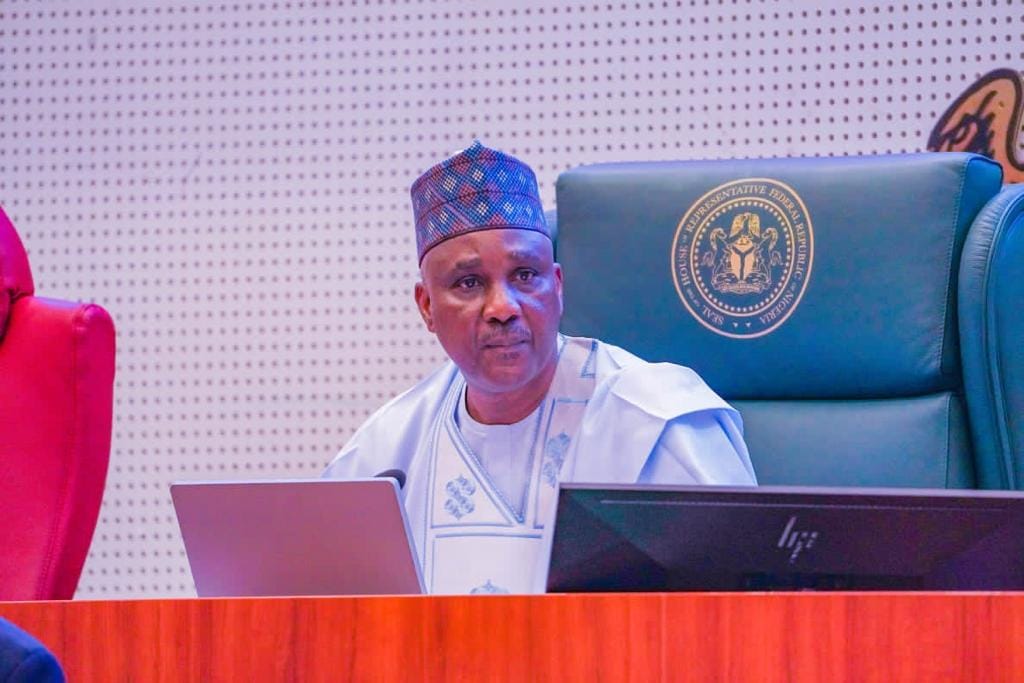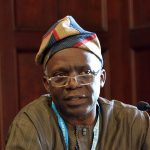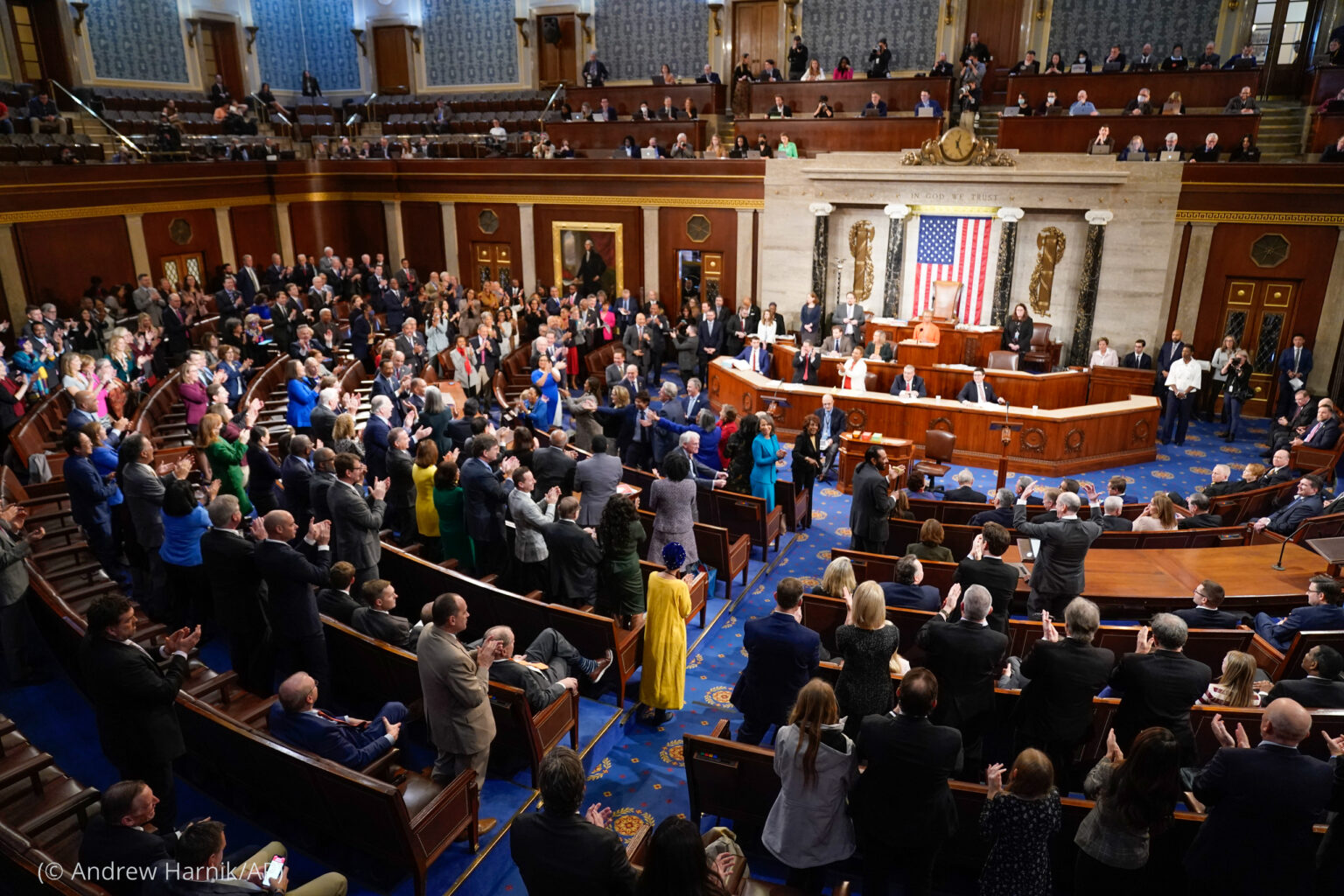Mr. Tajudeen Abbas, the Speaker of the House of Representatives, has expressed concern over Nigeria’s low tax-to-GDP ratio, which stands at only six percent, saying it is significantly below the global average and the World Bank’s minimum benchmark of 15 percent necessary for sustainable development.
At an interactive session on the tax reform bills currently before the National Assembly, Abbas said they are aimed at expanding Nigeria’s tax base.
He said the lawmakers have not finalized their position on the tax reform bills, pointing out that their role is to meticulously scrutinize proposals, ensuring alignment with the best interests of both constituents and the nation.
Persecondnews reports that the proposed tax reform bills in Nigeria are designed to revolutionize the country’s tax system, aiming to boost economic growth, support households, and increase competitiveness globally.
These reforms will promote equity, efficiency, and sustainable development, creating a fairer and more streamlined tax framework.
The key aspects of the reforms include adjustments to income tax laws that will facilitate remote work opportunities in the global business process outsourcing (BPO) sector, enabling Nigerian youth to succeed in the digital economy and boost exports.
Additionally, the reforms will support small businesses through tax exemptions, such as a 0% corporate income tax, VAT, and withholding tax for small businesses with an annual turnover of N50 million or less, among other provisions.
Abbas added that these four tax reform bills represent crucial proposals from the executive branch aimed at expanding Nigeria’s tax base, improving compliance, and establishing sustainable revenue streams for the country’s development.
He explained that the purpose of the interactive session is to provide members with a comprehensive understanding of the proposed bills and deepen their appreciation of their provisions, commence constructive dialogue on contentious or controversial areas, and build the consensus necessary to produce versions of the bills that align with the interests of the executive, the legislature, sub-national governments, and the Nigerian people.
According to him, the interaction will help them identify areas needing amendment, clarification, or improvement and consider the compatibility of these bills with the 1999 Constitution (as amended) and other extant laws.
Tax reforms form part of the provisions of the House Legislative Agenda because of their central role in achieving sustainable economic growth and development, he said, adding that “in every modern state, taxes are the bedrock of public revenue, providing the resources required to deliver education, healthcare, infrastructure, and security.”
Abbas lamented that despite being Africa’s largest economy, Nigeria still struggles with a tax-to-GDP ratio of just 6 percent—far below the global average and the World Bank’s minimum benchmark of 15 percent for sustainable development.
“This is a challenge we must address if we are to reduce our reliance on debt financing, ensure fiscal stability, and secure our future as a nation.”
He explained that the proposed tax reform bills aim to diversify the country’s revenue base, promote equity, and foster an enabling environment for investment and innovation.
“However, as representatives of the people, we must approach these reforms thoughtfully, understanding their potential implications for every segment of society.
“Taxes should be fair, transparent, and justifiable, balancing the need for public revenue with the burdens they impose on individuals and businesses.”
He said further that pre-legislative scrutiny is a well-established practice in many parliaments worldwide, as it allows lawmakers to thoroughly review proposed legislation, address ambiguities, and ensure alignment with constitutional provisions before formal consideration.
He explained that the interactive session provides them with the opportunity to engage with experts, stakeholders, and each other in a collaborative setting to better appreciate the implications of the bills.
He said: “The controversies surrounding these bills—whether in the media, civil society, or among governance stakeholders—are a reflection of their importance.
“Such debates are healthy and necessary in a democracy, and this session aims to channel those discussions into productive outcomes.
‘It is critical that we listen to diverse perspectives, ask probing questions, and seek clarity on any unclear provisions.”
He commended the Presidential Committee on Tax Reforms and Federal Inland Revenue for their work in presenting these proposals and asked members to approach the session with an open but critical mind.
He said: “Familiarise yourselves with the bills, engage actively, and raise any concerns or questions you may have. Together, let us seize this opportunity to shape a tax system that serves the best interests of all Nigerians.”
Deputy Speaker of the House Benjamin Kalu said the gathering is a testament to the shared commitment of the House to crafting a tax system that not only generates revenue but also engenders equity, economic growth, and sustainable development for our nation.
According to him, tax policy is more than a fiscal tool, as it is a catalyst for progress, a vehicle for opportunity, and a foundation for inclusive prosperity and must therefore be rooted in our collective aspiration to create a tax regime that works for all Nigerians, regardless of their economic standing.
Streamlining taxes should aim at incentivizing key sectors where taxation drives innovation, empowers businesses, and uplifts the most vulnerable among us.
He said the parliament expected more insight into how the tax reforms incentivize the digital economy, support small businesses and low-income households, and, more importantly, how the Zero-Rated Value Added Tax works or should work.
“In simple terms, what mischief do we intend to cure? What is the existing tax regime, and where do we want to be?
“It is crucial for these provisions to be articulated clearly, highlighting how they align with the overarching goal of engendering equity, driving economic growth, and ensuring that no section of society is left behind.
“It is very clear to Nigerians that there will be a need to harmonize taxes, eliminate nuisance levies, and streamline incentives to engender a more equitable and transparent tax system.
“This session is a reflection of the strength of our democracy—bringing together policymakers, stakeholders, and citizens to deliberate on these tax reforms.
“These tax reforms represent a shift towards a sustainable fiscal framework, including where effective taxation is a tool for creating opportunities, reducing inequalities, and enabling every citizen to thrive.
“As these bills proceed through the legislative process, there will be opportunities for Nigerians to air their views and actively participate in shaping the outcomes.
“Advocacy will also play a pivotal role in ensuring that citizens understand the objectives and benefits of these reforms, as well as the challenges they aim to resolve,” he said.
Mr. Zack Adedeji, the Chairman of the Federal Inland Revenue Service (FIRS), said the agency was awaiting the outcome of the tax reform bills, emphasizing that their role is to implement policies and laws passed by the National Assembly.























Leave a comment